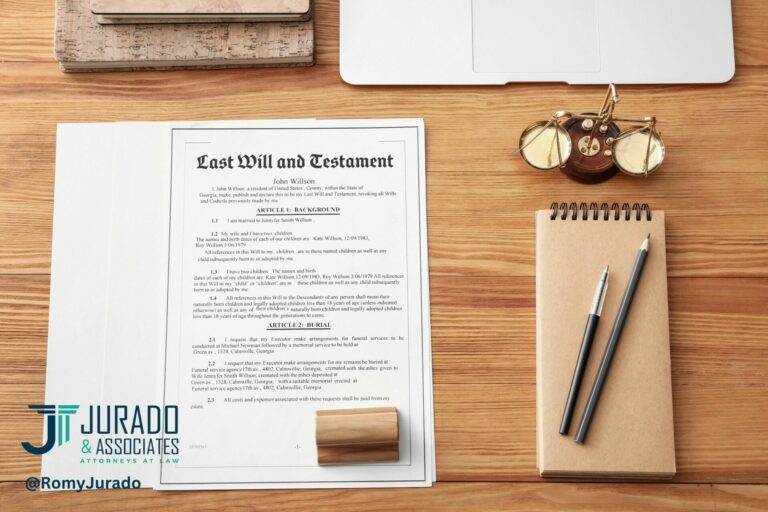In Florida, when there is no will, Florida law determines who inherits the property and who is in charge of administering the estate. This process is called probate, and it can be complicated and costly.
Below, we will explain what a personal representative is, what their duties are, and how they are appointed when there is no will.
What is a Personal Representative?
A personal representative is a person or institution that is responsible for managing the decedent’s estate during probate. The personal representative has to identify and gather the assets, pay any debts and taxes owed, and distribute the remaining assets to the beneficiaries according to the law.
In addition, the personal representative has to file reports and accountings with the court and keep the beneficiaries informed of the progress of the estate administration.
The personal representative can be an individual, such as a family member or a friend, or an institution, such as a bank or a trust company.
However, the personal representative must be qualified to serve under Florida law, which means they must:
- Be at least 18 years old,
- Be mentally competent, and
- Not have a felony conviction.
How is a Personal Representative Appointed When There Is No Will?
When there is no will, the court appoints a personal representative based on the order of priority established by Florida law.
The order of priority is as follows:
- The surviving spouse, if any.
- The person selected by a majority of the heirs.
- The heir nearest in degree to the decedent.
- A public administrator or a capable person appointed by the court.
If there is more than one person who has equal priority to serve as the personal representative, the court may choose one of them or appoint someone else who is suitable. The court may also remove or replace a personal representative due to misconduct, incapacity, or neglect of duty.
What Are the Advantages and Disadvantages of Being a Personal Representative?
Being a personal representative can be an honor and a privilege; however, it can also be a burden and a liability.
Some of the advantages of being a personal representative are:
- You have control over the estate administration and can make decisions that benefit the beneficiaries.
- You may receive compensation for your services and reimbursement for your expenses.
- You can ensure the decedent’s wishes are respected.
Some of the disadvantages of being a personal representative are:
- You have to deal with complex legal and financial matters that may be overwhelming.
- You have to comply with strict deadlines and rules.
- You may face conflicts or disputes with the beneficiaries or other parties.
- You may be held personally liable for any errors or omissions that cause harm to the estate or the beneficiaries.
How Can You Choose Your Own Personal Representative?
To choose your own personal representative, you need to have a will that names your preferred person or institution.
A will can also specify how you want your assets to be distributed, who you want to inherit your property, and what provisions you want to make for your minor children or other dependents.
Having a will can save your family time, money, and hassle in the long run. It can also give you peace of mind that your wishes will be honored and your loved ones will be taken care of after your death.
However, having only a will is not enough. There are other estate planning documents you should consider using, such as trusts and beneficiary designations. These tools can help you not only take care of your loved ones after your death but also avoid probate.
We Can Help You
If you need help with creating or updating your will or trust, or if you have questions about probate or personal representatives, you can count on Jurado & Associates, P.A. We are a team of experienced attorneys who specialize in estate planning and probate.
We can guide you through every step of the process and ensure that your estate plan reflects your goals and values.
Whether you need a simple will or a complex trust, we can help you create an estate plan that suits your needs and protects your interests.
Contact us today by phone at (305) 921-0976, by email at [email protected], or by WhatsApp at +1 (305) 921-0976.






